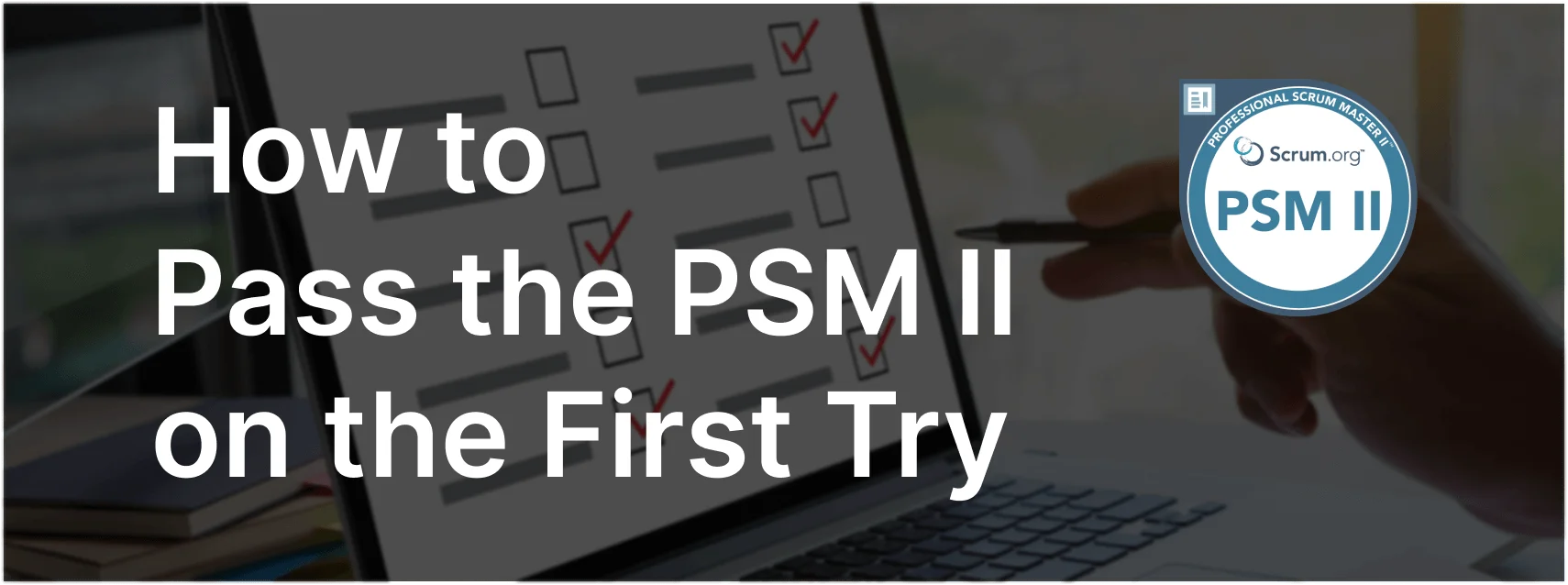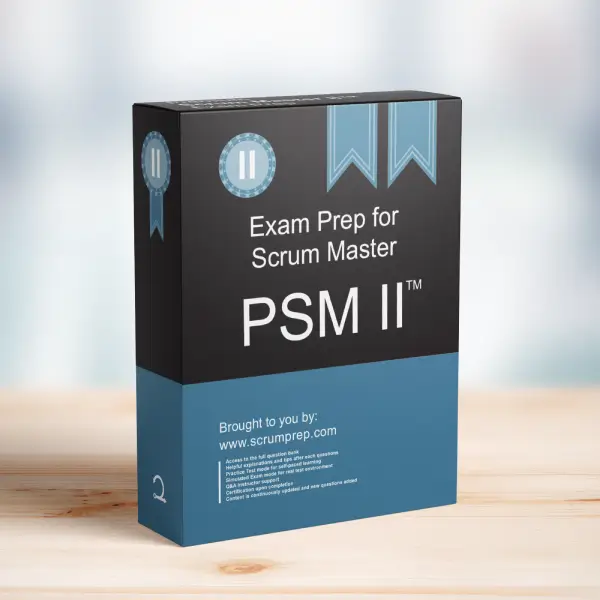Demonstrating Self-Management in Scrum Teams
Self-management is a core principle in Scrum, empowering Developers to take ownership of their work and collaborate effectively without direct supervision. This article explores a specific exam question about identifying self-managing behaviors in Scrum Teams, providing detailed explanations and insights relevant to the PSM II exam.
Exam Question
Which two of these situations best demonstrate that the Developers are self-managing? (choose the best two answers)
- A. The Developers are strictly working within the boundaries of their function description, and are handing off work in a timely fashion to the other roles within the team.
- B. Management is invited to the Daily Scrum for a progress update and subsequently works with the Scrum Master to optimize the plan for the next day.
- C. The Developers collaboratively select and re-plan their work during the Sprint.
- D. The Developers invite the right external people to the Sprint Planning to help them create a complete and detailed Sprint Backlog before the meeting time-box expires.
- E. The Developers create their own Sprint Backlog, reflecting all work that is part of the Definition of Done.
Correct Answers
C. The Developers collaboratively select and re-plan their work during the Sprint.
E. The Developers create their own Sprint Backlog, reflecting all work that is part of the Definition of Done.
Explanation
Correct Answers
C. The Developers collaboratively select and re-plan their work during the Sprint: This situation demonstrates self-management as the Developers are taking the initiative to select and adjust their work as needed throughout the Sprint. They are not waiting for instructions from management or other roles but are instead actively managing their own tasks and responsibilities.
E. The Developers create their own Sprint Backlog, reflecting all work that is part of the Definition of Done: Creating their own Sprint Backlog shows that the Developers are taking full ownership of their work. By ensuring that the Sprint Backlog includes all work required to meet the Definition of Done, the Developers demonstrate their commitment to delivering high-quality increments and their ability to manage the scope and complexity of their tasks independently.
Incorrect Answers
A. The Developers are strictly working within the boundaries of their function description, and are handing off work in a timely fashion to the other roles within the team: This approach indicates a siloed way of working rather than self-management. True self-management involves collaboration and flexibility, not just adhering to predefined roles and responsibilities.
B. Management is invited to the Daily Scrum for a progress update and subsequently works with the Scrum Master to optimize the plan for the next day: Inviting management to the Daily Scrum and having them optimize the plan undermines the self-managing nature of the Developers. The Daily Scrum is meant for the Developers to inspect and adapt their plan independently.
D. The Developers invite the right external people to the Sprint Planning to help them create a complete and detailed Sprint Backlog before the meeting time-box expires: While involving external stakeholders for input can be beneficial, it does not inherently demonstrate self-management. Self-managing teams should be able to create and manage their Sprint Backlog with minimal external intervention.
Responsibilities in Scrum
- Product Owner: The Product Owner is responsible for managing the Product Backlog and ensuring that it is well-ordered. They collaborate with the Developers to provide clear requirements and prioritize work.
- Scrum Master: The Scrum Master facilitates collaboration and ensures adherence to Scrum practices. They support the team in becoming self-managing and removing impediments that hinder progress.
- Developers: Developers are responsible for delivering potentially shippable increments at the end of each Sprint. They self-manage by planning, executing, and adapting their work collaboratively without relying on external direction.
Relevance to the PSM II Exam
Understanding and demonstrating self-management is crucial for the PSM II exam. It reflects advanced knowledge of Scrum principles and the ability of the Scrum Team to operate independently and effectively. Mastering this concept ensures that Scrum Masters can foster an environment where teams take ownership of their work and continuously improve their processes.
Key Takeaways
- Self-managing teams plan, execute, and adapt their work independently.
- Creating their own Sprint Backlog and collaboratively re-planning during the Sprint are key indicators of self-management.
- Self-management involves flexibility, collaboration, and a commitment to delivering high-quality increments.
Conclusion
Self-management is a fundamental aspect of Scrum, empowering Developers to take ownership of their work and collaborate effectively. By creating their own Sprint Backlog and re-planning their work during the Sprint, Developers demonstrate their ability to manage their tasks independently and deliver high-quality increments. Understanding these principles is crucial for effective Scrum implementation and success in the PSM II exam. For comprehensive preparation and practice exams, check out PSM II Exam Prep to enhance your understanding and application of Scrum principles.



